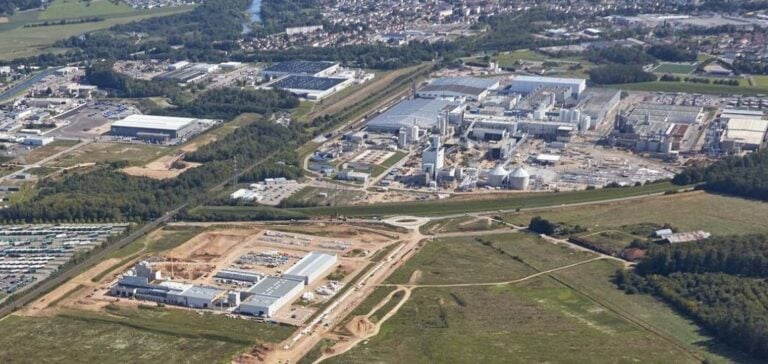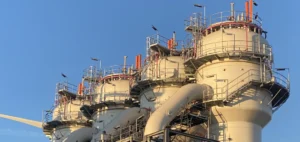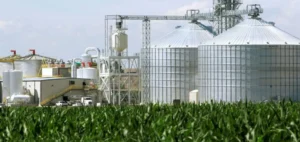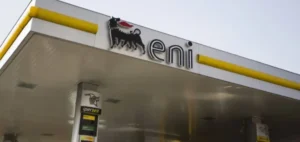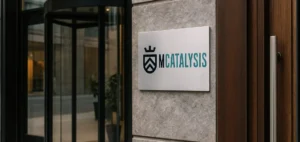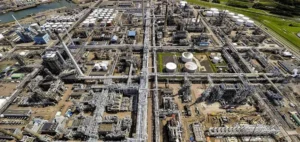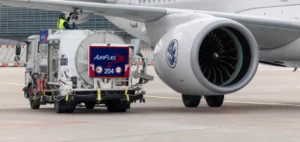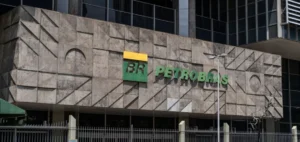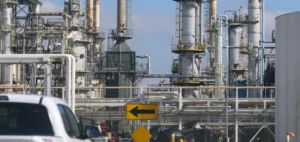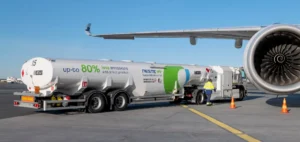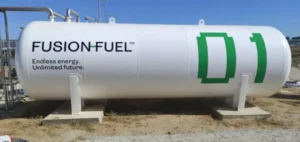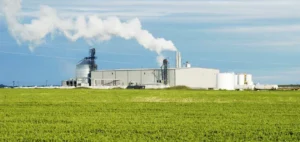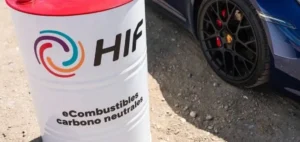Verso Energy, a French company specializing in renewable energies, has unveiled an ambitious project to build a production unit for green synthetic fuels for aviation at Épinal, in the Vosges region. This initiative represents an investment of one billion euros, and is part of a national strategy to establish four similar units in France by 2030. The renewable energies sector is also gaining momentum, with tidal turbines expected to be developed in France over the next few years.
At a press briefing, Verso Energy Managing Director Antoine Huard explained that the project is expected to generate 250 direct and indirect jobs. The promise to purchase the land was signed at the end of June, marking a crucial stage in the development of this initiative. The other sites planned for the construction of production units are located in Tartas (Landes), Saillat-sur-Vienne (Haute-Vienne) and near Rouen, each requiring comparable investments.
Sustainable fuel production
Sustainable aviation fuels (SAF) are made from non-fossil resources, offering an environmentally-friendly alternative to traditional kerosene. In Épinal, Verso Energy plans to produce these fuels by combining hydrogen, obtained by electrolysis of water with electricity, and CO2 emitted from biomass by neighboring manufacturers, such as paper maker Norske Skog. This innovative method significantly reduces the carbon footprint of aviation.
Projects in Tartas and Saillat-sur-Vienne will follow a similar approach, drawing on their proximity to paper mills. This industrial synergy is essential for optimizing production and minimizing logistics costs.
Regulatory and financial context
The realization of these projects is facilitated by the European “ReFuelEU Aviation” regulation of 2023, which imposes the progressive incorporation of ADC into the fuel of airlines operating in the EU, reaching 35% by 2050. Although the initial target of 1.2% by 2030 may seem modest, it already represents significant demand, justifying Verso Energy’s current investments.
Verso Energy also has solid financial backing. Xavier Caïtucoli, co-founder of the company, invested part of the 2.5 billion euros obtained from the sale of Direct Energie to TotalEnergies in 2018. In addition, the company has raised 50 million euros to finance the initial research phase, before seeking bank financing for production.
The project is part of a broader drive to reduce dependence on fossil fuels and promote sustainable, innovative solutions.
Verso Energy’s investments reflect a long-term strategic vision, combining technological innovation and industrial synergies to meet today’s environmental challenges. This initiative could not only position France as a leader in the production of green aviation fuels, but also boost the local and national economy.
The transition to cleaner fuels is essential to reduce greenhouse gas emissions and combat climate change. Through its investments and innovative approach, Verso Energy is playing a key role in this transformation.


